-

Jul
21
Infographic: NE1727 Multistate Research Project: Influence of Ovary, Uterus, and Embryo on Pregnancy Success in Ruminants
.png?sfvrsn=4ba852d1_0)
Members of the NE1727 Multistate Research Project: Influence of Ovary, Uterus, and Embryo on Pregnancy Success in Ruminants have compiled a set of manuscripts that represents their past and current efforts defining the importance of oocyte quality, follicle growth and the corpus luteum (CL) to pregnancy success (Bishop et al., 2022).
Read more
-

Jul
21
Interpretive Summary: Bioactive supplements influencing bovine in vitro embryo development
.png?sfvrsn=9fa852d1_0)
Ovum pickup and in-vitro production (IVP) of bovine embryos have quickly become commercial options for generating large quantities of transferable bovine embryos from genetically elite sires and dams. However, 2 limitations in this process still exist.
Read more
-

Jul
21
Interpretive Summary: Harnessing the value of reproductive hormones in cattle production with considerations to animal welfare and human health
.png?sfvrsn=3aaf52d1_0)
The animal production industry is responsible for providing products like meat, dairy, and egg products to the growing human population of the world. Within each sector, there are production practices that can improve the overall productivity of the animals and contribute to their welfare.
Read more
-

Jul
21
Interpretive Summary: Increasing vitamin D levels to improve fertilization rates in cattle
.png?sfvrsn=15af52d1_0)
Vitamin D is an important hormone that among other things, contributes to bone health, immunity, and reproduction. Recently, research has linked vitamin D to fertility in other species (primates), and therefore the objectives of the current research were to determine if mild supplementation with Vitamin D impacted fertility in female cattle.
Read more
-

Jul
21
Interpretive Summary: Preovulatory follicle contributions to oocyte competence in cattle: importance of the ever-evolving intrafollicular environment leading up to the luteinizing hormone surge
.png?sfvrsn=fdaf52d1_0)
This review focuses on intrafollicular changes that occur within the dominant follicle from luteolysis to the LH surge and discusses recent advancements in the literature related to how such changes support oocyte competence.
Read more
-

Jul
21
Interpretive Summary: Dose-response relationship between dietary choline and serum lipid profile, energy expenditure, and respiratory quotient in overweight adult cats fed at maintenance energy requirements
.png?sfvrsn=8caf52d1_0)
Choline is an essential nutrient important for lipid metabolism in the liver of many mammals. In the present study, fourteen overweight cats had their commercial extruded cat food top-dressed with different amounts of choline chloride supplement.
Read more
-

Jul
21
Interpretive Summary: Genomic evaluation and genome-wide association studies for total number of teats in a combined American and Danish Yorkshire pig populations selected in China
.png?sfvrsn=6aae52d1_0)
This study aimed at investigating joint genomic evaluation by combining data from multiple pig populations. Genomic evaluation is commonly applied in the pig industry to select the best animals to be the parents for the next generation.
Read more
-

Jul
21
Interpretive Summary: Effects of bamboo leaf extract intervention on the growth performance, antioxidant capacity, and hepatic apoptosis in suckling piglets
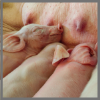
Neonatal piglets suffer from severe birth oxidative stress due to the immaturity of their antioxidant system. In vitro and in vivo studies have now shown that the function of the antioxidant system can be modulated by bamboo leaf extract (BLE).
Read more
-

Jul
21
Interpretive Summary: Constant light exposure in early life induces m6A-mediated inhibition of IGF gene family in the chicken
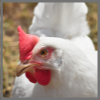
Aberrant light exposure (such as light at night and super-intensity light) induces sleep disturbances and mood disorders, as well as major depressive disorder. In poultry, photoperiod is an important factor affecting the growth and behavior of broiler chickens.
Read more
-

Jul
14
Interpretive Summary: Effects of particle size and phytase supplementation on apparent and standardized total tract digestibility of phosphorus in hybrid rye fed to growing pigs
.png?sfvrsn=919052d1_0)
Cereal grains such as corn, wheat, and barley are widely used as an energy source in swine diets. However, due to their recent soaring prices, it is necessary to use alternative feedstuffs for swine. New commercial hybrid rye with improved ergot resistance and higher yield has been developed.
Read more
-

Jul
14
Interpretive Summary: Effects of supplemental myo-inositol on growth performance and apparent total tract digestibility of weanling piglets fed reduced protein high-phytate diets and intestinal epithelial cell proliferation and function
.png?sfvrsn=689752d1_0)
After weaning, piglets undergo various kinds of stress that limit feed intake and nutrient digestibility. Much of the effects are strongest at the still-developing gastrointestinal tract where active feed digestion and nutrient uptake takes place.
Read more
-

Jul
14
Interpretive Summary: Effects of dietary energy density and supplemental rumen undegradable protein on intake, viscera, and carcass composition of lambs recovering from nutritional restriction
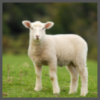
Animal performance is determined by the combined effects of both prior and current nutrition. The present study used a 2 × 3 × 4 factorial to examine the effects of prior feeding level (HI or LO) on subsequent ad-libitum intake of diets varying in energy density (7.8, 9.2, 10.7 MJ/kg DM) and level of supplemental rumen undegradable protein (RUP; 0, 30, 60, and 90g/d).
Read more
-

Jul
14
Interpretive Summary: Form of dietary selenium affects mRNA encoding cholesterol biosynthesis and immune response elements in the early luteal phase bovine corpus luteum
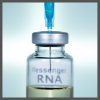
In regions with soils deficient in selenium (Se), producers should supplement this trace mineral to the diet of forage-grazing cattle. We previously reported that circulating concentrations of progesterone (P4) are affected by the form of Se supplemented to cows.
Read more
-

Jul
14
Interpretive Summary: Preovulatory follicular fluid and serum metabolome profiles in lactating beef cows with thin, moderate, and obese body condition
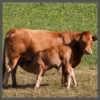
Extremes in body condition affect fertility and pregnancy outcomes in beef cows. Much research has been done in women and dairy cows to evaluate body condition’s effect on oocyte and embryo quality, pregnancy rates, and pregnancy outcomes.
Read more
-

Jul
14
Interpretive Summary: Insights from two independent transcriptomic studies of the bovine corpus luteum during pregnancy
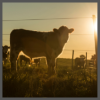
Reproductive efficiency is necessary for the financial and environmental sustainability of cattle production. A critical component of this efficiency is the maintenance of pregnancy. The corpus luteum (CL) is a transient ovarian endocrine gland that produces progesterone—the hormone that maintains pregnancy in all mammals.
Read more
-

Jul
14
Interpretive Summary: Ruminant conceptus-maternal interactions: interferon-tau and beyond
.png?sfvrsn=a09752d1_0)
Early pregnancy losses are common in cattle. This review describes how critical the interplay between the developing conceptus (embryo and extraembryonic membranes) and endometrium is to maintaining pregnancies in cattle and other ruminants.
Read more
-

Jul
14
Interpretive Summary: History, insights, and future perspectives on studies into luteal function in cattle

The corpus luteum (CL) forms on the ovary from the cellular remnants of the follicle following ovulation. The function of the CL is to produce progesterone that is required for successful pregnancy.
Read more
-

Jun
30
Senate Ag Committee Passes the Cattle Price Discovery and Transparency Act
.png?sfvrsn=829f52d1_0)
The United States Senate Agricultural Committee has passed the Cattle Price Discovery and Transparency Act (S. 4030), a bill that would establish pricing mechanisms for live animal purchases.
Read more
-

Jun
30
Study finds plant-based protein not as nutritious as real meat
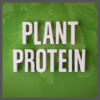
A new study by researchers at Ohio State University found that human cells currently do not absorb the same level of nutrients from plant-based protein as they do from meat from animals. While plant-based proteins have risen in popularity, this study shines a light on how the body reacts differently when compared to meat.
Read more
-

Jun
30
Call for nominations for the 2025 Dietary Guidelines Advisory Committee

The United States Department of Agriculture (USDA) and The United States Department of Health and Human Services (HHS) are calling for nominations for the 2025-2030 Dietary Guidelines Advisory Committee (DGAC). ASAS President-Elect Teresa Davis was a 2020-2025 member of the DGAC.
Read more
 JulInfographic: NE1727 Multistate Research Project: Influence of Ovary, Uterus, and Embryo on Pregnancy Success in Ruminants
JulInfographic: NE1727 Multistate Research Project: Influence of Ovary, Uterus, and Embryo on Pregnancy Success in Ruminants.png?sfvrsn=4ba852d1_0) Members of the NE1727 Multistate Research Project: Influence of Ovary, Uterus, and Embryo on Pregnancy Success in Ruminants have compiled a set of manuscripts that represents their past and current efforts defining the importance of oocyte quality, follicle growth and the corpus luteum (CL) to pregnancy success (Bishop et al., 2022).
Members of the NE1727 Multistate Research Project: Influence of Ovary, Uterus, and Embryo on Pregnancy Success in Ruminants have compiled a set of manuscripts that represents their past and current efforts defining the importance of oocyte quality, follicle growth and the corpus luteum (CL) to pregnancy success (Bishop et al., 2022). JulInterpretive Summary: Bioactive supplements influencing bovine in vitro embryo development
JulInterpretive Summary: Bioactive supplements influencing bovine in vitro embryo development.png?sfvrsn=9fa852d1_0) Ovum pickup and in-vitro production (IVP) of bovine embryos have quickly become commercial options for generating large quantities of transferable bovine embryos from genetically elite sires and dams. However, 2 limitations in this process still exist.
Ovum pickup and in-vitro production (IVP) of bovine embryos have quickly become commercial options for generating large quantities of transferable bovine embryos from genetically elite sires and dams. However, 2 limitations in this process still exist. JulInterpretive Summary: Harnessing the value of reproductive hormones in cattle production with considerations to animal welfare and human health
JulInterpretive Summary: Harnessing the value of reproductive hormones in cattle production with considerations to animal welfare and human health.png?sfvrsn=3aaf52d1_0) The animal production industry is responsible for providing products like meat, dairy, and egg products to the growing human population of the world. Within each sector, there are production practices that can improve the overall productivity of the animals and contribute to their welfare.
The animal production industry is responsible for providing products like meat, dairy, and egg products to the growing human population of the world. Within each sector, there are production practices that can improve the overall productivity of the animals and contribute to their welfare. JulInterpretive Summary: Increasing vitamin D levels to improve fertilization rates in cattle
JulInterpretive Summary: Increasing vitamin D levels to improve fertilization rates in cattle.png?sfvrsn=15af52d1_0) Vitamin D is an important hormone that among other things, contributes to bone health, immunity, and reproduction. Recently, research has linked vitamin D to fertility in other species (primates), and therefore the objectives of the current research were to determine if mild supplementation with Vitamin D impacted fertility in female cattle.
Vitamin D is an important hormone that among other things, contributes to bone health, immunity, and reproduction. Recently, research has linked vitamin D to fertility in other species (primates), and therefore the objectives of the current research were to determine if mild supplementation with Vitamin D impacted fertility in female cattle. JulInterpretive Summary: Preovulatory follicle contributions to oocyte competence in cattle: importance of the ever-evolving intrafollicular environment leading up to the luteinizing hormone surge
JulInterpretive Summary: Preovulatory follicle contributions to oocyte competence in cattle: importance of the ever-evolving intrafollicular environment leading up to the luteinizing hormone surge.png?sfvrsn=fdaf52d1_0) This review focuses on intrafollicular changes that occur within the dominant follicle from luteolysis to the LH surge and discusses recent advancements in the literature related to how such changes support oocyte competence.
This review focuses on intrafollicular changes that occur within the dominant follicle from luteolysis to the LH surge and discusses recent advancements in the literature related to how such changes support oocyte competence. JulInterpretive Summary: Dose-response relationship between dietary choline and serum lipid profile, energy expenditure, and respiratory quotient in overweight adult cats fed at maintenance energy requirements
JulInterpretive Summary: Dose-response relationship between dietary choline and serum lipid profile, energy expenditure, and respiratory quotient in overweight adult cats fed at maintenance energy requirements.png?sfvrsn=8caf52d1_0) Choline is an essential nutrient important for lipid metabolism in the liver of many mammals. In the present study, fourteen overweight cats had their commercial extruded cat food top-dressed with different amounts of choline chloride supplement.
Choline is an essential nutrient important for lipid metabolism in the liver of many mammals. In the present study, fourteen overweight cats had their commercial extruded cat food top-dressed with different amounts of choline chloride supplement. JulInterpretive Summary: Genomic evaluation and genome-wide association studies for total number of teats in a combined American and Danish Yorkshire pig populations selected in China
JulInterpretive Summary: Genomic evaluation and genome-wide association studies for total number of teats in a combined American and Danish Yorkshire pig populations selected in China.png?sfvrsn=6aae52d1_0) This study aimed at investigating joint genomic evaluation by combining data from multiple pig populations. Genomic evaluation is commonly applied in the pig industry to select the best animals to be the parents for the next generation.
This study aimed at investigating joint genomic evaluation by combining data from multiple pig populations. Genomic evaluation is commonly applied in the pig industry to select the best animals to be the parents for the next generation. JulInterpretive Summary: Effects of bamboo leaf extract intervention on the growth performance, antioxidant capacity, and hepatic apoptosis in suckling piglets
JulInterpretive Summary: Effects of bamboo leaf extract intervention on the growth performance, antioxidant capacity, and hepatic apoptosis in suckling piglets Neonatal piglets suffer from severe birth oxidative stress due to the immaturity of their antioxidant system. In vitro and in vivo studies have now shown that the function of the antioxidant system can be modulated by bamboo leaf extract (BLE).
Neonatal piglets suffer from severe birth oxidative stress due to the immaturity of their antioxidant system. In vitro and in vivo studies have now shown that the function of the antioxidant system can be modulated by bamboo leaf extract (BLE). JulInterpretive Summary: Constant light exposure in early life induces m6A-mediated inhibition of IGF gene family in the chicken
JulInterpretive Summary: Constant light exposure in early life induces m6A-mediated inhibition of IGF gene family in the chicken Aberrant light exposure (such as light at night and super-intensity light) induces sleep disturbances and mood disorders, as well as major depressive disorder. In poultry, photoperiod is an important factor affecting the growth and behavior of broiler chickens.
Aberrant light exposure (such as light at night and super-intensity light) induces sleep disturbances and mood disorders, as well as major depressive disorder. In poultry, photoperiod is an important factor affecting the growth and behavior of broiler chickens. JulInterpretive Summary: Effects of particle size and phytase supplementation on apparent and standardized total tract digestibility of phosphorus in hybrid rye fed to growing pigs
JulInterpretive Summary: Effects of particle size and phytase supplementation on apparent and standardized total tract digestibility of phosphorus in hybrid rye fed to growing pigs.png?sfvrsn=919052d1_0) Cereal grains such as corn, wheat, and barley are widely used as an energy source in swine diets. However, due to their recent soaring prices, it is necessary to use alternative feedstuffs for swine. New commercial hybrid rye with improved ergot resistance and higher yield has been developed.
Cereal grains such as corn, wheat, and barley are widely used as an energy source in swine diets. However, due to their recent soaring prices, it is necessary to use alternative feedstuffs for swine. New commercial hybrid rye with improved ergot resistance and higher yield has been developed. JulInterpretive Summary: Effects of supplemental myo-inositol on growth performance and apparent total tract digestibility of weanling piglets fed reduced protein high-phytate diets and intestinal epithelial cell proliferation and function
JulInterpretive Summary: Effects of supplemental myo-inositol on growth performance and apparent total tract digestibility of weanling piglets fed reduced protein high-phytate diets and intestinal epithelial cell proliferation and function.png?sfvrsn=689752d1_0) After weaning, piglets undergo various kinds of stress that limit feed intake and nutrient digestibility. Much of the effects are strongest at the still-developing gastrointestinal tract where active feed digestion and nutrient uptake takes place.
After weaning, piglets undergo various kinds of stress that limit feed intake and nutrient digestibility. Much of the effects are strongest at the still-developing gastrointestinal tract where active feed digestion and nutrient uptake takes place. JulInterpretive Summary: Effects of dietary energy density and supplemental rumen undegradable protein on intake, viscera, and carcass composition of lambs recovering from nutritional restriction
JulInterpretive Summary: Effects of dietary energy density and supplemental rumen undegradable protein on intake, viscera, and carcass composition of lambs recovering from nutritional restriction Animal performance is determined by the combined effects of both prior and current nutrition. The present study used a 2 × 3 × 4 factorial to examine the effects of prior feeding level (HI or LO) on subsequent ad-libitum intake of diets varying in energy density (7.8, 9.2, 10.7 MJ/kg DM) and level of supplemental rumen undegradable protein (RUP; 0, 30, 60, and 90g/d).
Animal performance is determined by the combined effects of both prior and current nutrition. The present study used a 2 × 3 × 4 factorial to examine the effects of prior feeding level (HI or LO) on subsequent ad-libitum intake of diets varying in energy density (7.8, 9.2, 10.7 MJ/kg DM) and level of supplemental rumen undegradable protein (RUP; 0, 30, 60, and 90g/d). JulInterpretive Summary: Form of dietary selenium affects mRNA encoding cholesterol biosynthesis and immune response elements in the early luteal phase bovine corpus luteum
JulInterpretive Summary: Form of dietary selenium affects mRNA encoding cholesterol biosynthesis and immune response elements in the early luteal phase bovine corpus luteum In regions with soils deficient in selenium (Se), producers should supplement this trace mineral to the diet of forage-grazing cattle. We previously reported that circulating concentrations of progesterone (P4) are affected by the form of Se supplemented to cows.
In regions with soils deficient in selenium (Se), producers should supplement this trace mineral to the diet of forage-grazing cattle. We previously reported that circulating concentrations of progesterone (P4) are affected by the form of Se supplemented to cows. JulInterpretive Summary: Preovulatory follicular fluid and serum metabolome profiles in lactating beef cows with thin, moderate, and obese body condition
JulInterpretive Summary: Preovulatory follicular fluid and serum metabolome profiles in lactating beef cows with thin, moderate, and obese body condition Extremes in body condition affect fertility and pregnancy outcomes in beef cows. Much research has been done in women and dairy cows to evaluate body condition’s effect on oocyte and embryo quality, pregnancy rates, and pregnancy outcomes.
Extremes in body condition affect fertility and pregnancy outcomes in beef cows. Much research has been done in women and dairy cows to evaluate body condition’s effect on oocyte and embryo quality, pregnancy rates, and pregnancy outcomes. JulInterpretive Summary: Insights from two independent transcriptomic studies of the bovine corpus luteum during pregnancy
JulInterpretive Summary: Insights from two independent transcriptomic studies of the bovine corpus luteum during pregnancy Reproductive efficiency is necessary for the financial and environmental sustainability of cattle production. A critical component of this efficiency is the maintenance of pregnancy. The corpus luteum (CL) is a transient ovarian endocrine gland that produces progesterone—the hormone that maintains pregnancy in all mammals.
Reproductive efficiency is necessary for the financial and environmental sustainability of cattle production. A critical component of this efficiency is the maintenance of pregnancy. The corpus luteum (CL) is a transient ovarian endocrine gland that produces progesterone—the hormone that maintains pregnancy in all mammals. JulInterpretive Summary: Ruminant conceptus-maternal interactions: interferon-tau and beyond
JulInterpretive Summary: Ruminant conceptus-maternal interactions: interferon-tau and beyond.png?sfvrsn=a09752d1_0) Early pregnancy losses are common in cattle. This review describes how critical the interplay between the developing conceptus (embryo and extraembryonic membranes) and endometrium is to maintaining pregnancies in cattle and other ruminants.
Early pregnancy losses are common in cattle. This review describes how critical the interplay between the developing conceptus (embryo and extraembryonic membranes) and endometrium is to maintaining pregnancies in cattle and other ruminants. JulInterpretive Summary: History, insights, and future perspectives on studies into luteal function in cattle
JulInterpretive Summary: History, insights, and future perspectives on studies into luteal function in cattle The corpus luteum (CL) forms on the ovary from the cellular remnants of the follicle following ovulation. The function of the CL is to produce progesterone that is required for successful pregnancy.
The corpus luteum (CL) forms on the ovary from the cellular remnants of the follicle following ovulation. The function of the CL is to produce progesterone that is required for successful pregnancy. JunSenate Ag Committee Passes the Cattle Price Discovery and Transparency Act
JunSenate Ag Committee Passes the Cattle Price Discovery and Transparency Act.png?sfvrsn=829f52d1_0) The United States Senate Agricultural Committee has passed the Cattle Price Discovery and Transparency Act (S. 4030), a bill that would establish pricing mechanisms for live animal purchases.
The United States Senate Agricultural Committee has passed the Cattle Price Discovery and Transparency Act (S. 4030), a bill that would establish pricing mechanisms for live animal purchases. JunStudy finds plant-based protein not as nutritious as real meat
JunStudy finds plant-based protein not as nutritious as real meat A new study by researchers at Ohio State University found that human cells currently do not absorb the same level of nutrients from plant-based protein as they do from meat from animals. While plant-based proteins have risen in popularity, this study shines a light on how the body reacts differently when compared to meat.
A new study by researchers at Ohio State University found that human cells currently do not absorb the same level of nutrients from plant-based protein as they do from meat from animals. While plant-based proteins have risen in popularity, this study shines a light on how the body reacts differently when compared to meat. JunCall for nominations for the 2025 Dietary Guidelines Advisory Committee
JunCall for nominations for the 2025 Dietary Guidelines Advisory Committee The United States Department of Agriculture (USDA) and The United States Department of Health and Human Services (HHS) are calling for nominations for the 2025-2030 Dietary Guidelines Advisory Committee (DGAC). ASAS President-Elect Teresa Davis was a 2020-2025 member of the DGAC.
The United States Department of Agriculture (USDA) and The United States Department of Health and Human Services (HHS) are calling for nominations for the 2025-2030 Dietary Guidelines Advisory Committee (DGAC). ASAS President-Elect Teresa Davis was a 2020-2025 member of the DGAC.



